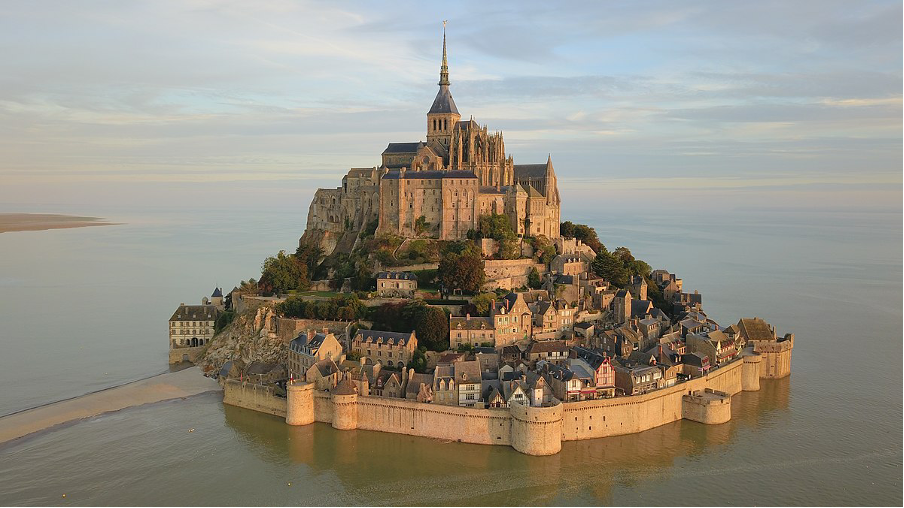Awesome, I said, as the waiter put down the beer.
I’d swear he sniggered: Awesome? St Paul’s Cathedral is awesome; the Pyramids are awesome. Not sure if a beer is awesome. Myself.
Philistine. Doesn’t he know that humans have been brewing beer since…well…since before there were Philistines? That beer is—can be (in the right hands)—an art form?? Besides, we’d just been to St Paul’s (we were in London: there was the dome, right there), and it is awesome…but you need a beer afterwards.
Brother Sebastian is a monk at the abbey at Mont Saint-Michel, on France’s Normandy coast. I haven’t been there myself, but Jonathan White has, researching his book1, and he met Brother Sebastian. He writes, ‘’I remember Brother Sebastian’s parting words:’
Tourists are pilgrims who don’t know they are pilgrims.
Interesting idea. A pilgrim, according to the Cambridge Dictionary, is a person who makes a journey, often a long and difficult one, to a special place for religious reasons. That’s a bit tricky, that last bit; especially if you’re of the persuasion that the world would be a better place without religion (apologies, Brother Sebastian); if you’re more inclined to Martin Hakubai Mosko’s2 view that The beauty of a garden, or of anything else in our lives, awakens something within us beyond our daily concerns3.
Which suggests to me that making the long and difficult journey to, say, Sissinghurst, qualifies as a pilgrimage (especially if you’re a devotee of Vita Sackville-West, or at least follow her teaching that a woman should have a room of her own4 ). And that—if you are a worshiper of V8s—why would not fulfilling a lifelong dream of being there for the Bathurst 1000 also qualify? After all, beauty is in the eye of the beholder—everyone has their thing—and either experience would take us beyond our daily concerns. Wouldn’t you say?
So, do we agree with Brother Sebastian: that we’re not really tourists after all? That the 90 million international visitors to France every year5—and the 2.5 million that visit Mont Saint-Michel6 —are just as much pilgrims as those travelling to some special place for ‘religious’ reasons? That tourists might be pilgrims, and some pilgrims might, actually, just be tourists? I guess he would say (and Martin Habukai Mosko might agree) that it would depend on whether the experience changed us in some way. On whether we experienced ‘awe’…
Awe is the feeling we get in the presence of something vast that challenges our understanding of the world, like looking up at millions of stars in the night sky. When people feel awe, they may use other words to describe the experience, such as wonder, amazement, surprise, or transcendence7.
I think we might well experience ‘awe’ when visiting a monk at Mont Saint-Michele, or finally seeing a famous garden in Kent, or being there to see Kiwi driver Shane van Gisbergen win Bathurst.
And I also think ‘awe’ could stretch to being served a cold beer after a morning spent communing with the angels in the architecture. That I am, perhaps, pilgrim.
Tides, The Science and Spirit of the Ocean.
See my earlier post, At the Still Point of a Turning World
From his book The Sound of Cherry Blossom
Her exact words were: A woman must have money and a room of her own if she is to write fiction. It seems to me if you’ve got the money sorted, the room shouldn’t be a problem.



And perhaps add to that one definition of “religion”: the belief in and worship of a superhuman power. Beer has, in no uncertain terms, superhuman powers.
Wonderful - morningwalk is a pilgrimage every morning!😊